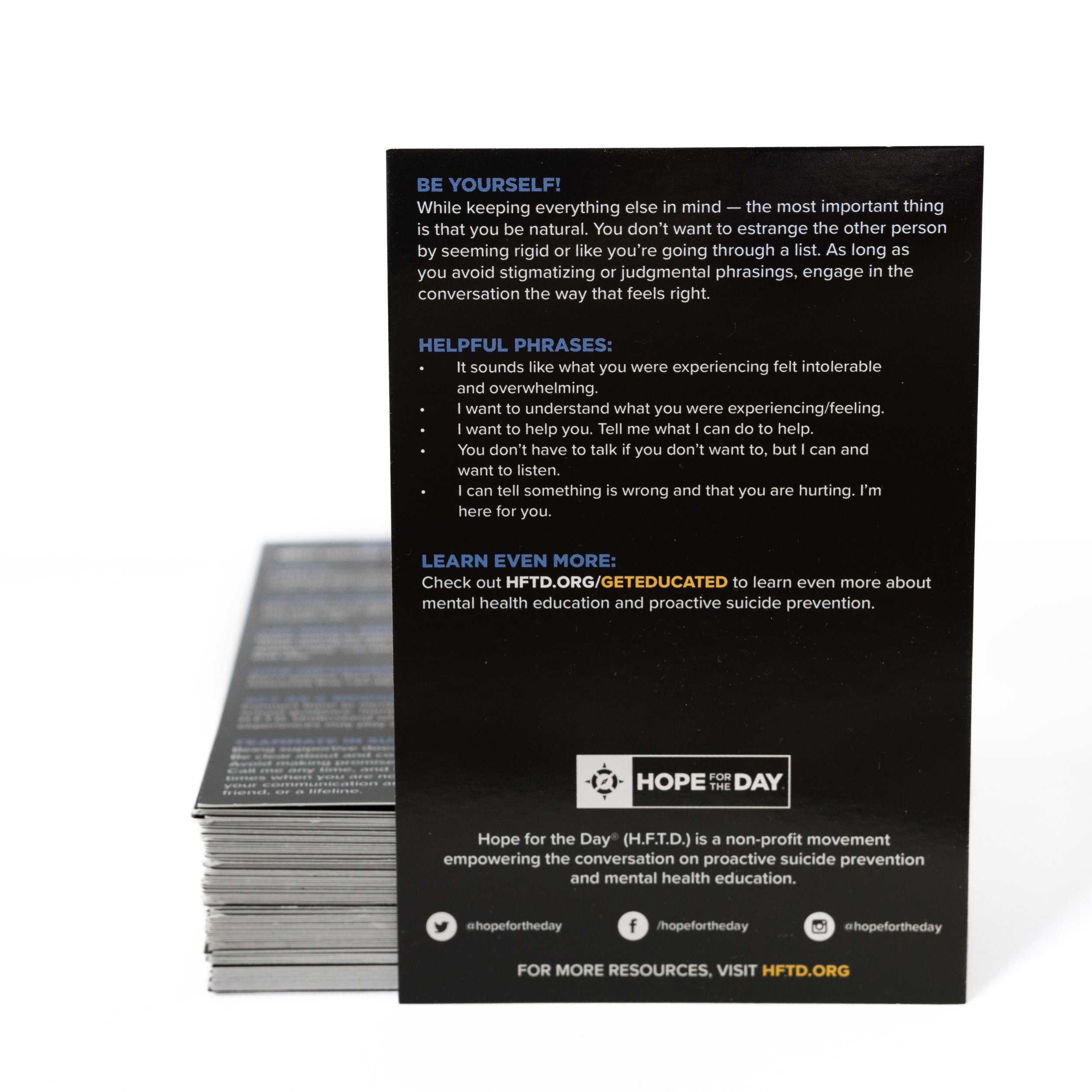"How To Be Supportive" Conversation Cards


"How To Be Supportive" Conversation Cards
Pack of our 4x6 How To Be Supportive Double Sided Quick Cards printed for distribution or display. These cards contain the following information:
HOW TO BE SUPPORTIVE
When someone experiences a mental health challenge, here is how you can be supportive.
LISTEN:
Let the person really express their experiences. Avoid interrupting or talking about yourself. Being someone they can talk to is essential when giving support!
BE NON-JUDGMENTAL:
Don’t criticize or minimize the way they feel. Set aside your own biases. You may not be able to understand exactly what they’re going through, and that’s OK.
ASK WHAT, NOT WHY:
When asking questions, avoid asking ‘why’ questions, and instead ask ‘what’ questions. For example: “What happened?” “What’s going on?” Asking “why” can have a judgmental tone even if you don’t mean it that way.
GIVE INFORMATION - DON’T DIAGNOSE:
Don’t assume they have an illness or condition. Provide direction to resources that can identify and assist with mental health challenges.
ACT AS A BRIDGE:
Connect them to mental health resources. Resources include family, school guidance, mental health professionals, and organizations like H.F.T.D. Understand who you are helping and how their intersectional experiences may play into the resources available to them.
TEAMMATE IN SUPPORT:
Being supportive doesn’t mean it is your duty to “fix” someone. Be clear about and communicate your own limits and limitations. Avoid making promises like, “I’m available to you 24 hours a day. Call me any time, and I’ll be there for you,” because there are times when you are not available (and that’s okay), just be clear in your communication and be able to offer alternatives, like another friend, or a lifeline.
BE YOURSELF!
While keeping everything else in mind — the most important thing is that you be natural. You don’t want to estrange the other person by seeming rigid or like you’re going through a list. As long as you avoid stigmatizing or judgmental phrasings, engage in the conversation the way that feels right.
HELPFUL PHRASES:
It sounds like what you were experiencing felt intolerable and overwhelming.
I want to understand what you were experiencing/feeling.
I want to help you. Tell me what I can do to help.
You don’t have to talk if you don’t want to, but I can and want to listen.
I can tell something is wrong and that you are hurting. I’m here for you.
LEARN EVEN MORE:
Check out hftd.org/geteducated to learn even more about mental health education and proactive suicide prevention.
Hope for the Day® (H.F.T.D.) is a non-profit movement empowering the conversation on proactive suicide prevention and mental health education.
